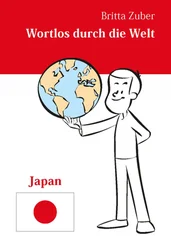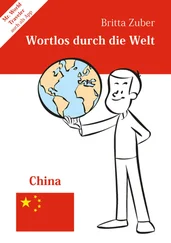The effect from the sap tea did not delay, and voided his body in long, slow shudders that lasted through the night. When dawn finally arrived he was emptied and exhausted and drenched in his own sweat. The thought that he would have to return to the grove and do it all over again in just a few hours brought such despair that for the first time since he started the journey he considered leaving it, despite the shame that would entail.
With the second bowl he was already dehydrated when he started, and he could feel it damaging his insides a little more. When the sun finally paled the mountains to the east again, he was certain the other monks had heard every gag and groan he made during the night.
He thought his body would adjust to the water-removing tea the same way it had grown used to the reduction of sustenance during the two thousand previous days, but that did not happen. Instead his body seemed to become more and more sensitive to the sap, until even just the smell when he lifted the bowl to his mouth made him gag, and it was only through great labor, merciless detachment, and harsh discipline, that he managed to drain it. He usually started vomiting and perspiring long before the bowl was empty. He voided himself and drank more, retched and returned to the tea, until the bowl was empty. After that, the heaving went on for most of the night and into the morning, until it was time to push his legs beneath him and walk to the lacquer sap trees again. Once, while crossing the garden, he suddenly had to lean over the carefully raked leaves, but nothing came, not even bile, which saved him from a lifetime of shame for having soiled the temple grounds.
However, one morning when the snow was bearing down on the eaves and the chill swallowed every waft of heat from the brazier in his room, it came to him that the lacquer tree sap wasn’t poison, but medicine. Not for the ills of the world, but for his own sickness of selfish desire and willful ignorance. After that he took the tea almost with pleasure.
His wrists and ankles thinned to twigs, his ribs and spine to branches. His skin became dry and thick, like parchment, and his lips paled and cracked. When he sat, it felt like the ends of his pelvic bone would pierce through his rump, and he was too weak to fulfill any of his tasks, even walking to the grove for more sap. Now that had become the chore of another monk. What little he could do, which was leaving his bedding to sit for a while and then lie down again, had to be done slowly and carefully, while looking beyond the constant ache in his bones, the listlessness in his limbs, the tenderness of his eyes. It caused every thought and emotion to stand out with cruel clarity, like a leafless tree under the desert sun, which did help the sitting.
Occasionally, the abbot handed him one of the tiny tangerines from the well-tended trees in the south garden, to stop his gums and skin from bleeding. He ate the golden fruits whole, peel and all, but where they had previously tasted sweet and fresh, now their scent and flavor was that of the sap tea and his own bile, and made him throw up and perspire almost as hard as they did. But he had to continue. Nearly no one who attempted the journey succeeded, and for those who did the rest hardly mattered.
The new year observances came and went and he barely noticed it. He scolded himself for his lack of attentiveness and presence of mind, but lost it again as soon as the voiding started with a mouthful of the next bowl of tea. No one suggested he cease the process; it would be the same as saying that they didn’t think he’d manage, and being allowed to start on it was a sign of great trust and confidence, although on moonless nights when he slept with his head nearly in a bowl for voiding, he almost hoped someone would say something. Yet, in the spring he discovered a brightness, a glow inside himself, that was beautiful and terrible at the same time. He had no words for it and did not try to explain it, but remained inside it when he could, and simply watched it when he couldn’t. He told no one of this.
When they finally moved him into his appointed space, built especially for his long limbs, he was more dead than alive. If it hadn’t been for the stone behind him that supported his back and the wood around him that braced his knees, he would not have been able to sit up at all. No longer having to eat or drink was a relief since his insides refused everything now, even pure water from the temple’s icy source. The silk ribbon they tied to his wrist extended to a small silver bell outside. He had to ring it once a day to signal he was still alive and that they shouldn’t open his tomb yet to see if the transformation was complete. Since he couldn’t see the sunlight through the stone and no longer managed to follow the passing of the days, he listened for the sounds of the morning chants instead, and rang the bell when they were done.
He didn’t know how the end would come, but imagined it like falling asleep without noticing, which he had done all his life, or as something common, yet unstoppable, as the first snow in winter, or when the ice melts in spring. Now the brightness was there all the time and there was no need to leave it.
Katsuhiro said his name and he startled, nearly sending the plastic bottle that was still clenched in his hand clattering to the floor.
“Poor bastard,” Katsuhiro said, nodding at the monk behind the glass. “Mummifying himself and then being buried alive.”
“Why?” he said, his voice more high-pitched than he had intended. “He wanted to be happy. What more does human life have to offer?”
Katsuhiro stared at him. “That’s crazy! Don’t tell me you would have become a mummy too if you had lived back then?”
“Mind your own business,” he said and started walking toward the door and the summer-sound of insects.
For weeks afterward Katsuhiro sent him photos of rich teenagers drinking champagne in private jets, shopping for designer goods with crowds of friends, or tanning by the pool on yachts while deep kissing other people. He never replied to those mails and immediately deleted them.
WITH THE NEXT ROUND OF TESTS FOR THE ASTRONAUT selection program taking place right after New Year’s, he not only had a timely, but also an impressive-sounding excuse to leave the city earlier than he otherwise would. Although Beanie was staying over at her parents’ house, probably in the girly-looking bedroom where she grew up and which her parents still kept, despite her having moved out years ago and having lived in various apartments after that with a sequence of friends and lovers, he went to sleep on the couch. The cats came to cuddle on his chest and belly, but soon curled up against the sofa’s back cushion. The two small creatures snored loudly enough to wake him once, and when he moved they started purring, as if to persuade him to remain still.
When the alarm on the phone rang, he got up and dressed in the clothes he had arrived in. In the kitchen he opened the food cabinet and saw that most of the cans were still there. Beanie avoided processed food as much as she could and usually made her meals from scratch. He put a few tins of tomato paste, crab meat, pineapple, and mushrooms in the backpack. Most of his winter clothes were in the cabin, but he took out a wool sweater and a good shirt and pants from the bedroom closet, rolled them up, and put them inside a plastic bag to protect them in the backpack. He left a “Goodbye I love you all will mail soon” note to Beanie on the kitchen worktop and petted the cats in turn. Then he exited the apartment and locked the door behind him.
The elevator was empty and silent. In the mirror on the rear wall he was a tall, lean shape in a blue mountain jacket and gray cargo pants. The empty foyer smelled of cigarettes and stale air from the entrance. He entered the cold December drizzle, the almost deserted parking lot, and the bare lindens outside. The morning was quiet, carrying the scent of wood smoke, fog, and bone meal from the feed factory in the bay. The tiny droplets that hung in the air felt like cold kisses. On the path through the narrow park that led from the honeycomb towers to the train station he only passed a few dog walkers and some stragglers on their way home from the night’s festivities.
Читать дальше












